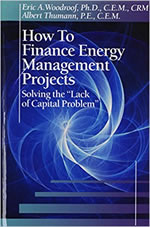All Articles
Alcohol, Tobacco & Other Drugs
Internet Marketing
Alternative Dispute Resolution (ADR)
Land Mapping - Surveying - Zoning
Appraisal & Valuation
Land Use
Arms - Guns - Weapons
Linguistics
Artificial Intelligence (AI) / Machine Learning (ML)
Logistics - Reverse Logistics
Attorney Fees
Marketing
Bacteria - Fungus - Mold Investigation
Mediation
Banking
Medical Malpractice
Boating
Neuropsychology
Branding - Brand Management
Nonprofit Organizations
Business Consulting
Pain Management
Construction
Patents
Counseling
Police Practices & Procedures
Design
Product Liability
Documentation Examination & Analysis
Recreation & Sports
Dram Shop Liability
Risk Management
Economics
Search Engine Optimization (SEO)
Engineering
Security
Expert Witnessing
Sexual Abuse - Molestation - Harassment
Family Issues
Slip, Trip & Fall
Feng Shui
Taxation
Forensic Psychiatry
Toxicology
Healthcare Facilities - Hospitals
Warnings & Labels
Human Factors
Workplace Violence
HVAC - Heating, Ventilation, Air Conditioning
Yoga
More...

TELECOMMUNICATION-PAGE ARTICLES MAIN PAGE
. Contact Us if you are interested in having your work published on our website and linked to your Profile(s).
All Articles
Accounting
Insurance Coverage Analysis
Addiction Issues & Substance Abuse
Investigation & Surveillance
Alcohol, Tobacco & Other Drugs
Jails - Prisons - Correctional Facilities
Alternative Dispute Resolution (ADR)
Land Use
Appraisal & Valuation
Logistics - Reverse Logistics
Business Management
Medical Malpractice
Chemical Industry
Medicine
Child Welfare
Meditation
Computers
Mining
Counseling
Neuropsychology
Digital / Crypto Currency
Obstetrics - Gynecology (OBGYN)
Electrical - Electrocution
Oil & Gas
Energy - Utilities
Pharmaceuticals
Ethics / Ethical Duties
Pharmacy & Pharmacology
Eyewitness Testimony
Plants & Trees
Family Issues
Police Practices & Procedures
Feng Shui
Politics
Finance
Radiology
Forensic Analysis
Recreation & Sports
Forensic Psychiatry
Risk Management
Forensics
Search Engine Optimization (SEO)
Gems & Jewelry
Speech-Language Pathology
Hotels & Hospitality
Toxicology
Hydrology
Underwriting
Industrial Hygiene and Safety
Yoga
More...
Featured Articles
There are no active articles here at this time. Please use the search bar, try another category, or contact us if you would like to contribute an article.
This Article is unavailable. Contact Us
Search articles by title, description, author etc.
Sort Featured Articles
Featured resources
Warnings: Fundamentals, Design and...
by Mark R. Lehto & James M. Miller
How to Finance Energy Management...
by Eric A. Woodroof
Offshore Jurisdictions Guide
by Carlo Scevola and Karina Sneiderova
Follow us










